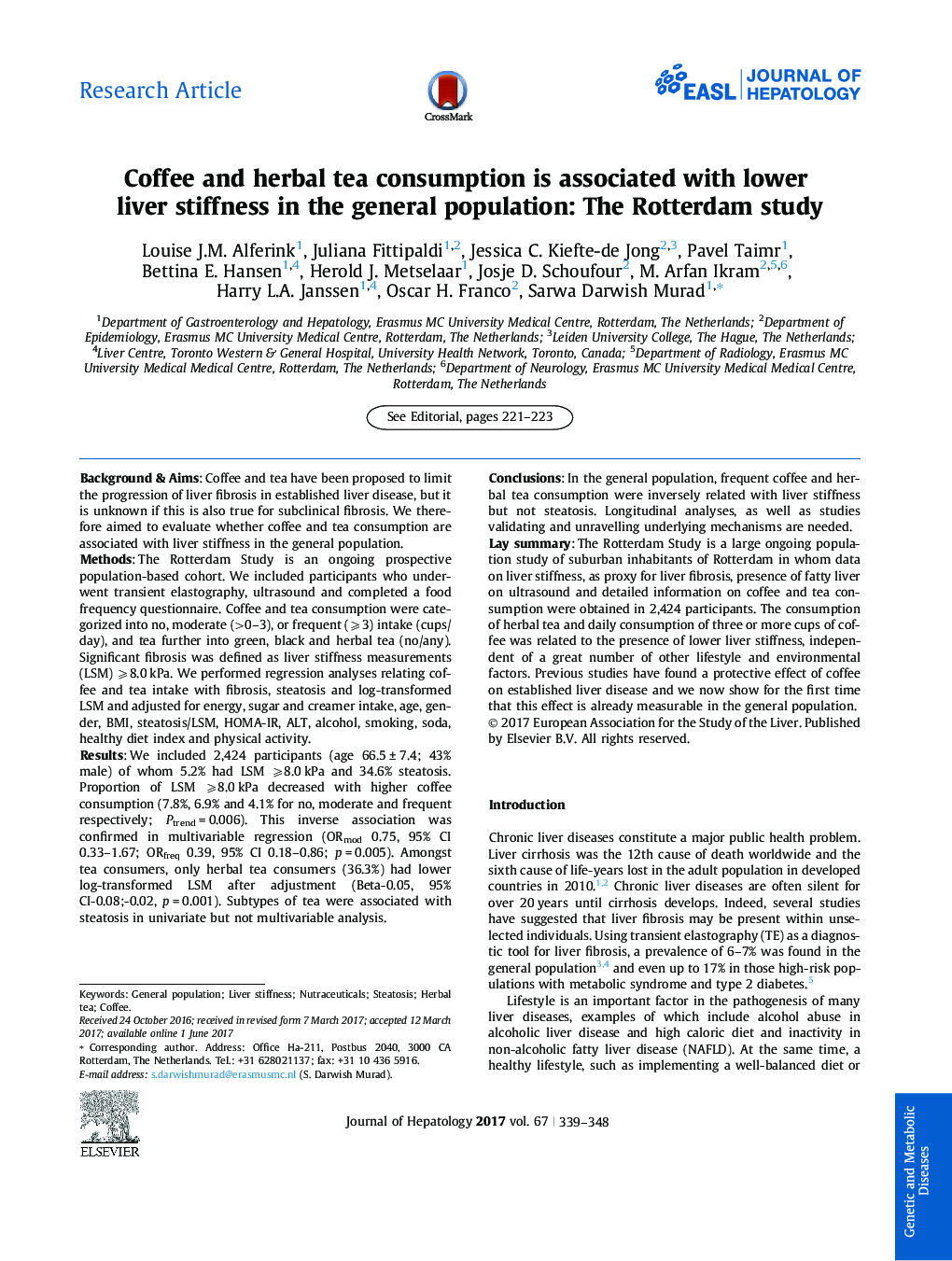| کد مقاله | کد نشریه | سال انتشار | مقاله انگلیسی | نسخه تمام متن |
|---|---|---|---|---|
| 5660538 | 1407492 | 2017 | 10 صفحه PDF | دانلود رایگان |
Background & AimsCoffee and tea have been proposed to limit the progression of liver fibrosis in established liver disease, but it is unknown if this is also true for subclinical fibrosis. We therefore aimed to evaluate whether coffee and tea consumption are associated with liver stiffness in the general population.MethodsThe Rotterdam Study is an ongoing prospective population-based cohort. We included participants who underwent transient elastography, ultrasound and completed a food frequency questionnaire. Coffee and tea consumption were categorized into no, moderate (>0-3), or frequent (⩾3) intake (cups/day), and tea further into green, black and herbal tea (no/any). Significant fibrosis was defined as liver stiffness measurements (LSM) ⩾8.0 kPa. We performed regression analyses relating coffee and tea intake with fibrosis, steatosis and log-transformed LSM and adjusted for energy, sugar and creamer intake, age, gender, BMI, steatosis/LSM, HOMA-IR, ALT, alcohol, smoking, soda, healthy diet index and physical activity.ResultsWe included 2,424 participants (age 66.5 ± 7.4; 43% male) of whom 5.2% had LSM ⩾8.0 kPa and 34.6% steatosis. Proportion of LSM ⩾8.0 kPa decreased with higher coffee consumption (7.8%, 6.9% and 4.1% for no, moderate and frequent respectively; Ptrend = 0.006). This inverse association was confirmed in multivariable regression (ORmod 0.75, 95% CI 0.33-1.67; ORfreq 0.39, 95% CI 0.18-0.86; p = 0.005). Amongst tea consumers, only herbal tea consumers (36.3%) had lower log-transformed LSM after adjustment (Beta-0.05, 95% CI-0.08;-0.02, p = 0.001). Subtypes of tea were associated with steatosis in univariate but not multivariable analysis.ConclusionsIn the general population, frequent coffee and herbal tea consumption were inversely related with liver stiffness but not steatosis. Longitudinal analyses, as well as studies validating and unravelling underlying mechanisms are needed.Lay summaryThe Rotterdam Study is a large ongoing population study of suburban inhabitants of Rotterdam in whom data on liver stiffness, as proxy for liver fibrosis, presence of fatty liver on ultrasound and detailed information on coffee and tea consumption were obtained in 2,424 participants. The consumption of herbal tea and daily consumption of three or more cups of coffee was related to the presence of lower liver stiffness, independent of a great number of other lifestyle and environmental factors. Previous studies have found a protective effect of coffee on established liver disease and we now show for the first time that this effect is already measurable in the general population.
146
Journal: Journal of Hepatology - Volume 67, Issue 2, August 2017, Pages 339-348
